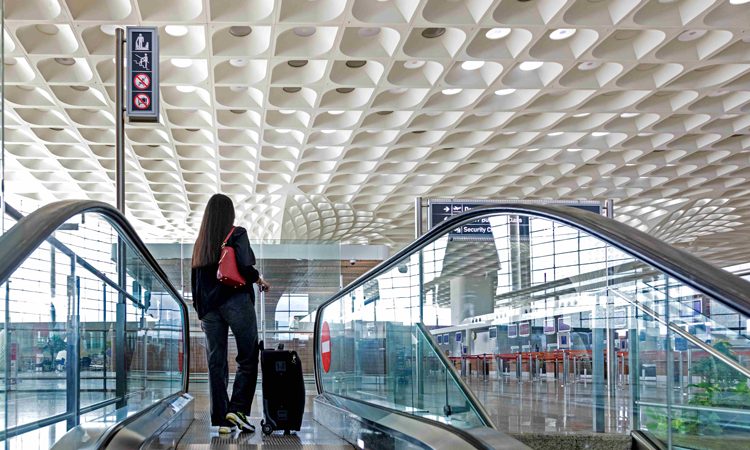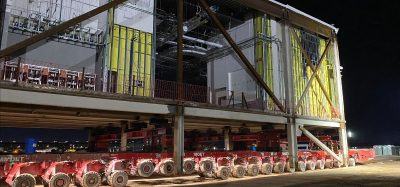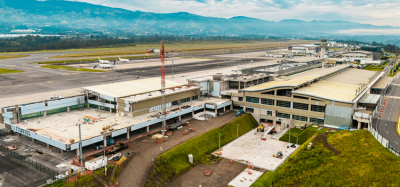Mumbai Airport becomes 100 per cent sustainable on green energy
- Like
- Digg
- Del
- Tumblr
- VKontakte
- Buffer
- Love This
- Odnoklassniki
- Meneame
- Blogger
- Amazon
- Yahoo Mail
- Gmail
- AOL
- Newsvine
- HackerNews
- Evernote
- MySpace
- Mail.ru
- Viadeo
- Line
- Comments
- Yummly
- SMS
- Viber
- Telegram
- Subscribe
- Skype
- Facebook Messenger
- Kakao
- LiveJournal
- Yammer
- Edgar
- Fintel
- Mix
- Instapaper
- Copy Link
Posted: 19 October 2022 | International Airport Review | No comments yet
Mumbai International Airport has switched to green sources for its energy consumption needs, making the airport one of India’s 100 per cent sustainable airports.


Credit: BOM
The aviation sector globally has a huge role to play in strengthening the sustainability pillars: environment, social, and economic. Mumbai International Airport (BOM) has entirely switched to green sources for its energy consumption needs, making it one of India’s 100 per cent sustainable airports. The airport is the first in India to launch hybrid technology which solely runs on green energy since April 2022, thus enabling a highly efficient and low carbon future for aviation. This sustainable initiative undertaken by Mumbai Airport is part of the airport’s efforts that reduces its carbon footprint, which further propels its journey towards ‘Net Zero’ emissions.
Out of the total 100 per cent, the airport procures around five per cent of the airport’s electricity requirement through its onsite solar generation and the rest 95 per cent from other green sources such as hydro and wind energy. Ushering into a sustainable future, Mumbai Airport witnessed a rise in natural energy procurement with 57 per cent green consumption in April 2022 to a whopping 98 per cent between May to July 2022. And finally attained the landmark 100 per cent utilisation of renewable sources of energy in August 2022. The airport is committed to continuous reduction in energy consumption and carbon footprint through various initiatives. Moreover, Mumbai Airport has initially undertaken the measure of installing 1.06MW rooftop solar power plant, which the airport eventually strengthened to 4.66MW. This effort was recognised by the Confederation of India Industry (CII), where the airport was awarded the National Award for Excellence in Energy Management Excellent Energy.
In line with its vision the airport has prepared roadmap to achieve ‘Net Zero Carbon Emission‘ by 2029. In April 2022, Mumbai Airport enhanced its capacity usage of green energy and deployed a 10Kwp Hybrid SolarMill consisting of 2Kwp TurboMill (three Savonious type VAWT) and 8Kwp Solar PV modules with an estimated minimum energy generation of 36 Kwh/day. This first-of-its-kind, fully integrated, hybrid renewable energy product, harnesses solar and wind energy combined to generate electricity. This green transition to renewable energy ensures a reduction of around one lac 20 thousand tonnes of CO2 equivalent (tCO2e) every year, thus moving closer to Mumabi’s target of Net Zero by the year 2029. The airport implemented Carbon Accounting and Management System (CAMS) based on ISO 14064-1:2018 to identify, measure and manage Green House Gas (GHG) emissions. Mumbai Airport is the first Indian airport to have participated in Airport Carbon Accreditation (ACA) programme of Airports Council International (ACI) in 2012.
Speaking on the occasion, Mumbai Airport’s spokesperson said: “We are extremely delighted to achieve this key milestone in our journey towards attaining a sustainable future for Mumbai Airport. Quick wins do not create high-level of impact on the environment, thus, the airport has always been determined to focus on long-term transformations. The diligent efforts of the airport in undertaking several thoughtful initiatives, has paved the way to achieve this feat. With several accolades in recognising energy usage and sustainable efforts under the belt, the airport over the years has been acknowledged by globally acclaimed organisations, for its efficient management of energy consumption. As Mumbai Airport aspires to become net-zero by 2029, this landmark event further encourages us to stay committed to our efforts in enhancing the operational efficiency of the airport while operating on fully renewable energy”.
For the aviation industry, two identified clear priorities that push for challenging change for a better tomorrow is the shift to sustainable aviation fuel (SAF), a transition that is now seen in India and the second is the need to develop sustainable airports. At Mumbai Airport, sustainability is an intrinsic concept, and its initiatives align with the United Nations (UN) Sustainable Development Goals and is prepared in accordance with Global Reporting Initiatives (GRI) standards, thus meeting the global environmental requirements.
Related topics
Airport development, Airside operations, Emissions, Passenger experience and seamless travel, Sustainability, Sustainable Aviation Fuel (SAF), Sustainable development, Terminal operations
Related airports
Related organisations
Airport Council International (ACI), The Confederation of India Industry (CII), United Nations (UN)


















